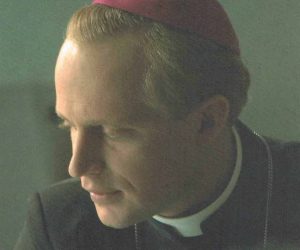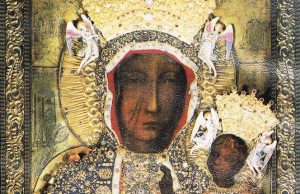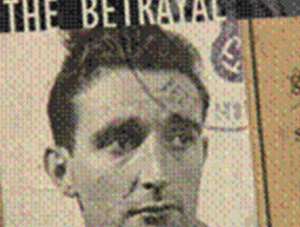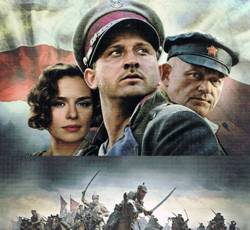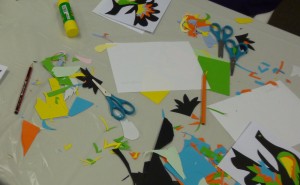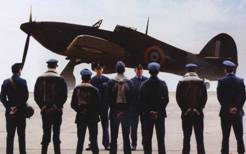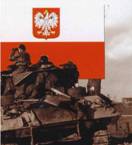A 10 year Karol Wojtyla in the 1930’s in Poland, has dreams, many dreams. One by one they are shattered. First, by the loss of his mother and brother. Then by the outbreak of war and the death-fleeing exodus that ensued. And finally by the first sign of Jewish persecution.
These events will mark Karol’s long journey from worker, to poet and to teacher. A journey full of encounters that eventually leads him to become the man we all knew. A man who has marked an era. A man who has made history.
Karol Wojtyla, whose tireless fight for humanity and basic fundamental rights begins with the German invasion of his native Poland in 1939.
Appalled at the brutal treatment afforded his Jewish friends, Karol turns to his religion as a means of making a difference in the world, and with the help of several other like-minded individuals mounts a non-violent, but extremely effective, anti-Nazi resistance.
Ordained as a priest at war’s end, Karol finds himself fighting another form of Godless totalitarianism, this one from the Communists who have overtaken his country.
Ultimately, Father Karol Wojtyla’s noble mission culminates in his being elected as Pope John Paul II in 1978 and it was surely no coincidence that Poland’s liberation was now but a matter of time.
2 screenings – watch in one sitting on Sunday 13th August 2-5pm or return Wednesday afternoon 16th August 1-4pm
Polish Museum, 125 Elliot St, Howick phone 09 533 3530.
Entry by cash donation or internet banking
This film is being shown on the exact feast day being August 15th.
‘Our Lady of Czestochowa’, is a religious film showing the history of the monastery and sanctuary of Jasna Gora in Czestochowa, Poland. The film takes you on a tour of Poland’s greatest religious shrine, including those places which are not accessible to ordinary visitors. This film helps to understand the unique phenomenon of the Jasna Gora sanctuary
The Black Madonna Icon is a 122 x 82cm painting on a wooden panel which is shrouded by richly ornamented jeweled robes, legends and miracles.
It is believed that Poland is under protection of The Black Madonna painting. A famous Catholic icon celebrated by Polish people on 15th August each year.
Story about a Pilgrimage to Czestochowa, Poland
The tradition of pilgrimages to Czestochowa, a famous Marian sanctuary (also commonly known by the name of Jasna Gora, or the Bright Mountain) is a long and diverse in Poland.
The most characteristic form of devotion is the summer walking pilgrimages to the sanctuary, when people from all over the country set off to walk in organized groups to this very special place. The experience involves hours or days of walking but there’s much more to do than just walk. The friars organize lectures on the way, focusing on various aspects of Catholic spirituality.
Perhaps the most striking feature of such an experience, it is the attitudes of people you inevitably meet on the way. From sharing drinking water or carrying your backpack for a while, to just being there to listen when you need it – but also inhabitants of local villages that pilgrimage passes through offer vast assistance, provide meals and places to stay overnight. Thus the way to the sanctuary becomes at least equally important to finally reaching it – another nice parable to the Christian way of life.
The experience is open to anyone who would like to participate in the pilgrim each August. There are some foreign guests – from the US, France, Finland, Philippines. Just bring yourself a pair of comfortable shoes – and you can start walking. Text by Kamila (Warsaw, Poland)
A 10 year Karol Wojtyla in the 1930’s in Poland, has dreams, many dreams. One by one they are shattered. First, by the loss of his mother and brother. Then by the outbreak of war and the death-fleeing exodus that ensued. And finally by the first sign of Jewish persecution.
These events will mark Karol’s long journey from worker, to poet and to teacher. A journey full of encounters that eventually leads him to become the man we all knew. A man who has marked an era. A man who has made history.
Karol Wojtyla, whose tireless fight for humanity and basic fundamental rights begins with the German invasion of his native Poland in 1939.
Appalled at the brutal treatment afforded his Jewish friends, Karol turns to his religion as a means of making a difference in the world, and with the help of several other like-minded individuals mounts a non-violent, but extremely effective, anti-Nazi resistance.
Ordained as a priest at war’s end, Karol finds himself fighting another form of Godless totalitarianism, this one from the Communists who have overtaken his country.
Ultimately, Father Karol Wojtyla’s noble mission culminates in his being elected as Pope John Paul II in 1978 and it was surely no coincidence that Poland’s liberation was now but a matter of time.
2 screenings – watch in one sitting on Sunday 13th August 2-5pm or return Wednesday afternoon 16th August 1-4pm
Polish Museum, 125 Elliot St, Howick phone 09 533 3530.
Entry by cash donation or internet banking
Ron Jeffery was described by the Gestapo as “one of the foxiest devils in Europe” His wartime adventures as a courier, spy and even executioner have all the hallmarks of a fantastic spy thriller– but it’s all true.
This powerful film uses mix of documentary, rare archive footage and vivid recreations to lift the secrecy on this story of a courageous British born, New Zealander during his time in Europe during WW2
Ron Jeffery served as a Lance Corporal in the 6th West Kent Battalion and was captured during the Battle of France by the Wehrmacht in 1940. He was transported to prison and then to a camp in Poland. He escaped twice from two camps and finally joined up with the Polish Underground Army in Warsaw.
Using forged documents issued under false Polish and German names, Jeffery began to serve as a courier in the Polish Underground, as a part of several missions to occupied cities such as Vienna, Prague and Budapest.
After WW2, Jeffery emigrated to New Zealand where he ran a business.He compiled his memoirs in the book called “Red Runs the Vistula” published in 1985.
This is his story.
Awards:
In 1943, Home Army General Tadeusz Bor-Komorowski personally awarded Jeffery the Polish Cross of Valour.
In 1996 Jeffery was awarded the Home Army Cross
In 1995, the President of Poland Lech Walesa awarded him the Comander of the Order of Merit, one of the highest honours the Polish Government can bestow on a foreigner.
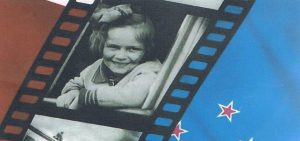 Join our popular guided tour of the galleries, includes talk & film’ Overcoming Fate’
Join our popular guided tour of the galleries, includes talk & film’ Overcoming Fate’
With Subtitles.
Hosted visit, open to individuals and small groups up to 8. Larger groups please book with staff.
The museum opens at 10am, we will serve morning tea and start with a talk at 10.15am, the event will finish around 12noon, with free time to wander the exhibits.
$10 per person. Morning tea/coffee and biscuits included. Bookings not required.
See this deeply moving, creative and contemporary film interpretation of the Polish Pahiatua children’s story, as recalled 70 years on.
‘The heroes of my film are Polish children who survived deportation to Siberia together with their families, and then, as a result of exile in wartime, went to the port of Wellington [in New Zealand]’ says director Marek Lechowicz. ‘Most of these children lost their loved ones and have not yet visited the homeland’.
This hauntingly creative interpretation of the children’s stories, recalled 70 years later by participants, is accompanied by documentary footage and contemporary poetic and artistic works.
‘Overcoming Fate’ was filmed around New Zealand and in Poland. Screened nationwide on Polish television, it marks a milestone in national consciousness due to the former communist government’s suppression of Soviet involvement in the deportation of Polish families.
The ‘1920 Battle of Warsaw’ is the only battle fought by the Poles themselves (unassisted by others) since the seventeenth century, with a winning result.
This battle maintained the newly regained Poland’s independence for 19 years and halted the Red Army march on Europe, forcing Lenin and Trotsky to resign from lighting the “flame of world revolution”.
However, it is not the historical figures, except Pilsudski, that will play a decisive role in this film.
The entire burden of action and the involvement of the audience’s emotions falls on the shoulders of two literary characters: Ola a revue theatre actress and her recently married husband Jan, a communism-supporting idealist. The fighting lines will be shown by Jan’s fate. Ola will be a participant in and be a witness of the emotions experienced by the residents of Warsaw.
Wycinanki is a traditional Polish folk art, try something new, come create with paper and scissors.
This adult group meets on the first Friday each month, looking at various types of wycinanki or cut-outs, using paper and scissors. A warm welcome awaits you
$10pp includes a cuppa.
New members are welcome any time as we work at our own pace, materials and designs provided. Coming for the first time? Please ring me.
Polish decorative paper cut-outs belong to the most beautiful in the world. Traditionally they were made by hand, without drawing the design first, cutting out using sheep-sheering scissors.
- New members can watch a short presentation
- Designs based on the Lowicz and Kurpie regions of Poland
- Beginners workshop is also available throughout the year, gather your group together and make a booking, a date and time to suit you.
- Ideal class for children’s birthday parties too! 8plus, can be available on some Saturdays
For enquiries and bookings please phone 533 3530 or email us.
Museum hours Tue to Fri 10-4 and Sun12-5
This dramatised documentary recounts how, during the most decisive phase of Battle of Britain, a single squadron of 34 Polish fighter pilots wreaked havoc on the Luftwaffe, in the process helping to change the course of history and overturning RAF prejudices.
Based on a diary kept by the Pilots of the 303 Squadron.
Belatedly, the Poles were cleared for active service and had an immediate impact. By the time the Battle of Britain was won, they had claimed 126 enemy planes, but as the war ended, their joy turned to despair as they saw their own country handed to Stalin
In September 1939 Poland was overrun by the German and Russian, yet the Polish fighting spirit remained unbroken… They were displaced fighting forces, which would exact revenge for the occupation of Poland, fighting first in France, and than alongside with British in almost every campaign in the desert and Western Europe
After 7 years of fighting, many of those soldiers who returned home from the war were arrested , murdered or deported to Siberia by the Soviets who now occupied Poland.
The Free Polish forces will be remembered as the Gladiators who were willing to sacrifice everything to rescue their country.
This film is about the 1940 Katyn massacre directed by Andrzej Wajda.
It was nominated for the Best Foreign Language Film for the 80th Academy Awards.
In the movie the events of Katyn are related through the eyes of the women, the mother, wives and daughters of the victims executed on Stalin’s order by the NKVD in 1940.
The Polish museum is for all New Zealanders
“GLAM” Gallery, Library, Archive, Museum
Howick is a destination that offers variety including Howick beach, Stockade Hill, various Fencible sites and historical walks, All Saints Church, Uxbridge Creative Arts Centre, Te Tuhi Gallery and Howick Historical Village.
The quaint Howick village shops are a 5 minute walk from the museum and the Botany Town Centre is a 10 minute drive.
We look forward to welcoming you to “Polish films on Sunday”, the Howick district and the Polish Museum.
